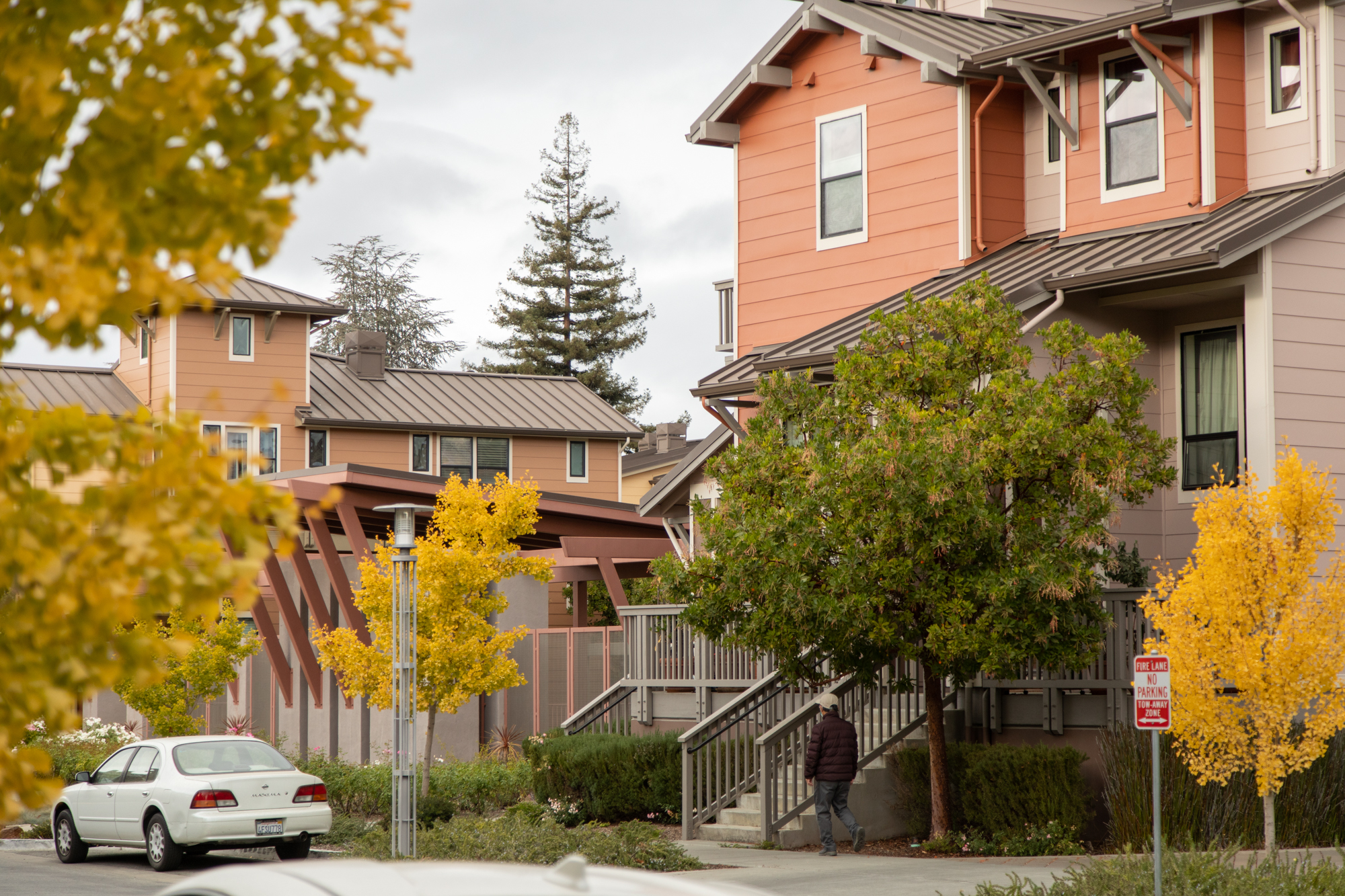Two days after he repelled a recall attempt, Gov. Gavin Newsom signed on Thursday two contentious housing bills that have been at the top of the agenda for Democratic lawmakers, including one that would allow more dwellings on properties designated for single-family zoning.
Senate Bill 9, which will allow homeowners to subdivide their properties to construct up to four housing units, and Senate Bill 10, which allows cities to allow construction of developments with up to 10 housing units in transit-rich areas, both cleared their final hurdle with Newsom's signature on Thursday. Authored by Senate President Pro Tempore Toni Atkins, D-San Diego, and state Sen. Scott Wiener, D-San Francisco, respectively, the two bills were boosted by California YIMBY and other pro-housing groups. They were also opposed by cities like Palo Alto, where city leaders have consistently characterized them as an attack on local control.
Newsom had given little indication before Tuesday's state recall election whether he will sign the bills. In endorsing them on Thursday, he said in a statement that the "housing affordability crisis is undermining the California Dream for families across the state, and threatens our long-term growth and prosperity."
"Making a meaningful impact on this crisis will take bold investments, strong collaboration across sectors and political courage from our leaders and communities to do the right thing and build housing for all," Newsom said in a statement.
While many housing advocates have long called for the loosening of rules surrounding single-family zones — a step that has already been taken in cities like Berkeley and Minneapolis — prior efforts to achieve major zoning reforms in the Legislature had struggled to advance in recent years. In January 2020, the Legislature killed Wiener's bid to increase zoning in transit-friendly and jobs-rich areas when it voted down SB 50.
SB 10 advanced after lawmakers agreed to make several amendments to address criticisms that the legislature is an attack on local control. Palo Alto was among the cities that have criticized a provision of the bill that allows cities to use SB 10 to override existing zoning restrictions that were put in place through voter initiatives. Palo Alto's letter of opposition argues that such legislation "echoes more of Russia than of California."
Supporters of the bill have noted that cities are not required to rely on the provisions of SB 10 if they don't want to. Those that do cannot apply it to parkland or open space. And cities that want to use the bill to override zoning restrictions imposed by local initiatives would need to secure a two-thirds majority from their legislative body.
Wiener said in a statement that SB 10 provides "one important approach: making it dramatically easier and faster for cities to zone for more housing."
"It shouldn't take five or 10 years for cities to re-zone, and SB 10 gives cities a powerful new tool to get the job done quickly," Wiener said. "I want to thank the Governor for signing this essential bill and for continuing to lead on housing."
In his signing message for SB 10, Newsom touted its "potential to increase housing development at a time when the state is experiencing a significant shortage of the units needed to meet the needs of Californians." He also warned, however, that while the benefits are promising, "certain provisions may have unintended impacts on affordable housing projects that use density bonuses, as well as possible Fair Housing implications based on how jurisdictions may choose to implement its provisions."
He wrote that he is directing the Department of Housing and Community Development's newly established Housing Accountability Unit to "vigilantly monitor the implementation of this bill at the local level, and if needed, work with the Legislature to proactively ·address any unintended consequences, should they arise."
SB 9 also seeks to boost California's housing supply by allowing property owners to split their lots and to build up to four homes (which includes two accessory dwelling units or junior accessory dwelling units) on a lot where currently one exists. A report from the Terner Center for Housing Innovation at University of California, Berkeley described SB 9 in July as "the most significant housing bill coming out of California's current legislative session," noting its potential to "expand the supply of smaller-scaled housing, particularly in higher-resourced, single-family neighborhoods."
In analyzing a similar proposal, SB 1120, which faltered on the final day of the prior legislative session, the Terner Center estimated that about 6 million properties would be eligible for the bill's provisions. If 5% of those parcels created new two-unit structures, that would have resulted in 597,706 new homes, according to the report.
Atkins said in a statement on Thursday that SB 9 will "open up opportunities for homeowners to help ease our state's housing shortage, while still protecting tenants from displacement."
"And it will help our communities welcome new families to the neighborhood and enable more folks to set foot on the path to buying their first home," Atkins said. "I'm grateful for the Governor's partnership, and our shared determination to turn the corner on California's housing crisis."



Comments